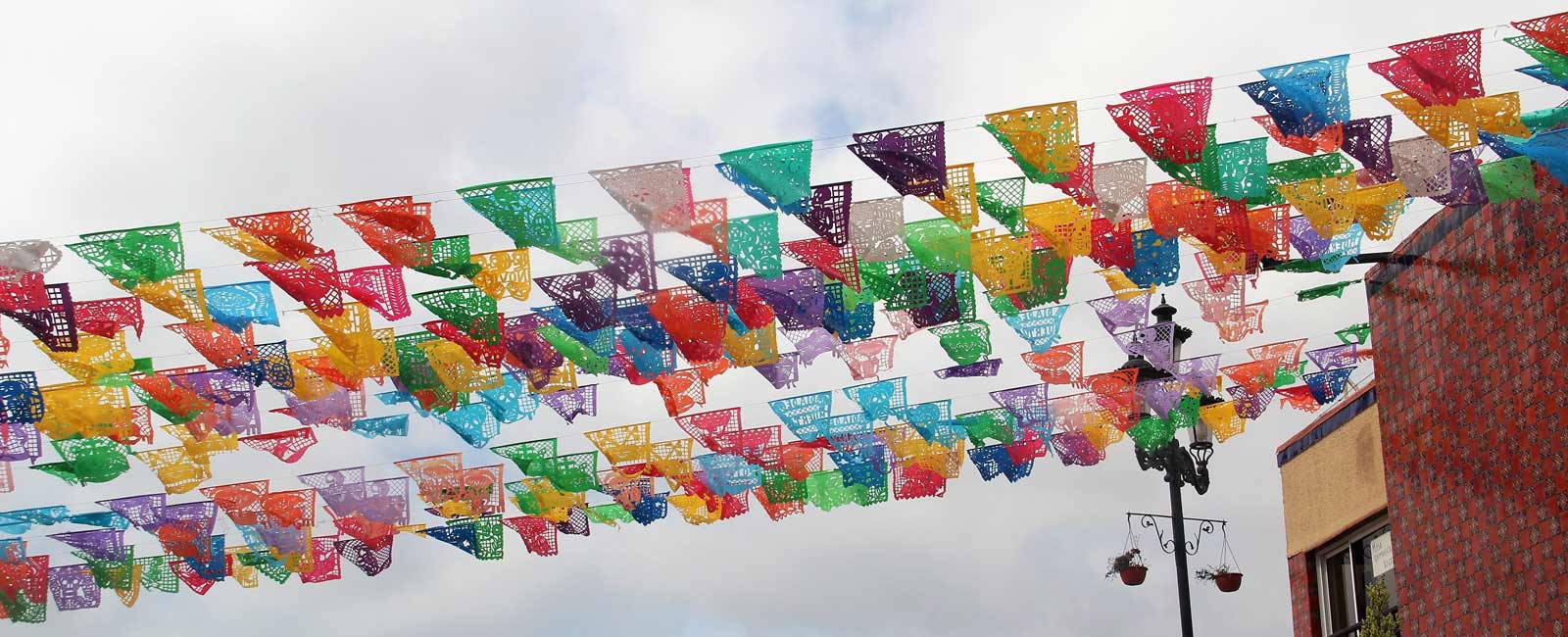
Francis Parker Exploring Southeast Asia
Sunday, Feb. 8: Into the Organized Chaos of Hanoi
A car in front of you. A bus behind you. A rickshaw to your left. Twenty-five clamoring people walking directly in your path as you begin to move, slowly and surely, towards your destination. As one of four million scooters in Hanoi, you are not alone in this daily struggle for an unscathed way through the organized chaos that is this city.
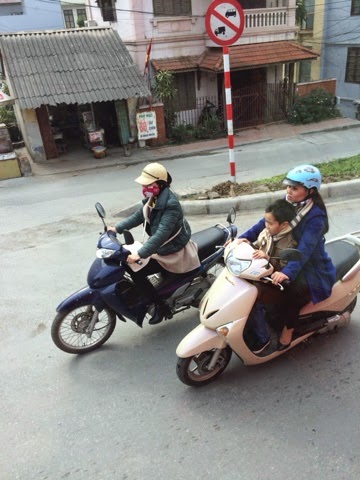
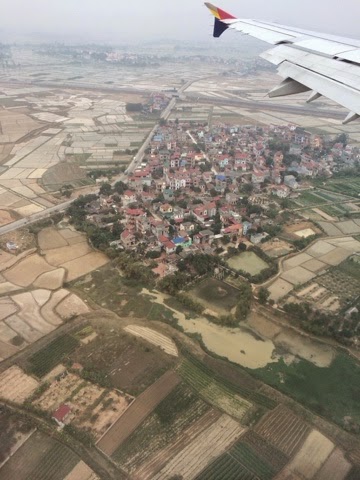
When we arrived in Hanoi, stripped of our sense of time and perception of hunger after twenty-seven hours of travelling, what struck us most about the city was the cultural shift, especially in relation to traffic. To an outside eye, there are no rules. Lane markings are purely for show, and turn signals are vestigial mechanisms. There is no conceivable way drivers and pedestrians exist in harmony. But somehow, it works. The city streets are alive with close calls and near misses, but we attribute this relatively successful traffic system to a fundamental change in culture. Such a system cannot work without drivers and pedestrians who are willing to be patient and selfish at the same time. In fact, one of the first things our guide told us was, “When you are crossing the street, walk slowly. The cars won’t stop for you, but they will slow down and swerve around you.” While the residents of Hanoi won’t put their day on hold for you to cross the street (and if we’re being honest, you’re probably not at a crosswalk), they will kindly and without complaint make way for you.
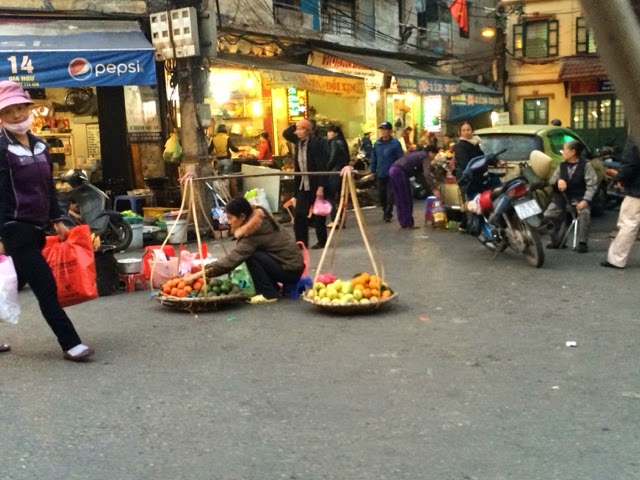
This slightly paradoxical attitude defined the rickshaw rides that we took this evening, around sunset. Setting aside the neo-colonialistic implications of the cycle rickshaw, we were able to see Hanoi from the inside out. We were first exposed to the traffic patterns, and indeed, cars would come within an inch of hitting the rickshaw before they regained their patience and let us go by. We passed through Hanoi’s Old District as slow-moving obstacles for motorcycles, while we inhaled the scents of cigarette smoke and simmering beef. We observed three young couples in wedding garb, posing outside the grand old hotel in the center of Hanoi, right next to young men slipping on gravel as they ran for the shuttlecock, playing badminton in the park. We could feel the city’s vibrancy and activity throughout the ride, and we felt ourselves in the middle of the organized chaos.
Mirroring Hanoi’s duality in traffic strategies, Vietnam as a country, as we quickly discovered, is a convergence of two worlds. From the airplane window we observed the dirt roads and crumbling houses on the outskirts of Hanoi, and as we made our way to the downtown area, the rice paddies populated by field workers and water buffalo became spotted with new buildings, new highways, and new bridges. Our experience in the new airport for Hanoi encapsulates the dichotomy of this city. After we trudged off our second long flight, we were stopped before going through customs and asked for pictures of each group member. We did not have such pictures, nor were we aware that said pictures were required. Amidst several confused faces and several knowing smiles, it became clear that the “photo fee” we had to pay of two dollars per person was code for bribery, and Vietnam was operating under an antiquated system of authority, now in a building that is only two months old.
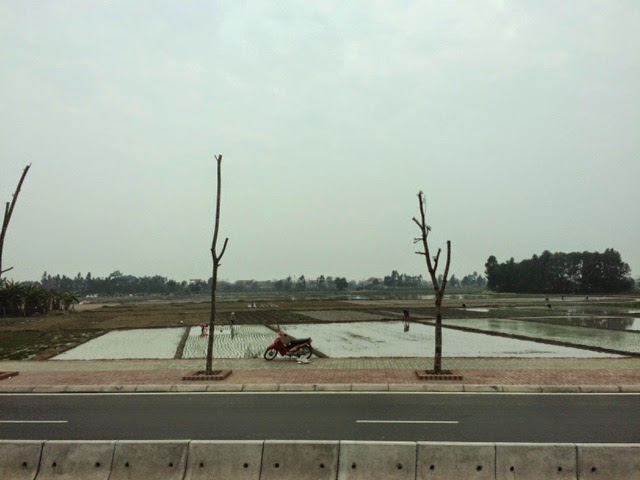
An interesting geo-political reason for all of the new development in Vietnam can be traced to the pseudo-Cold War between the U.S. and China. Countries that oppose China help Vietnam, because often common enemies creates the deepest bond amongst friends. Because the U.S. is an ally among other reasons, the people of Vietnam, even just one day in, have been some of the most welcoming people we have ever met. We are honored to be a part of this great relationship between, countries, cultures, and people.
–Olivia Ghosh, Snigdha Nandipati, Rex Winn
